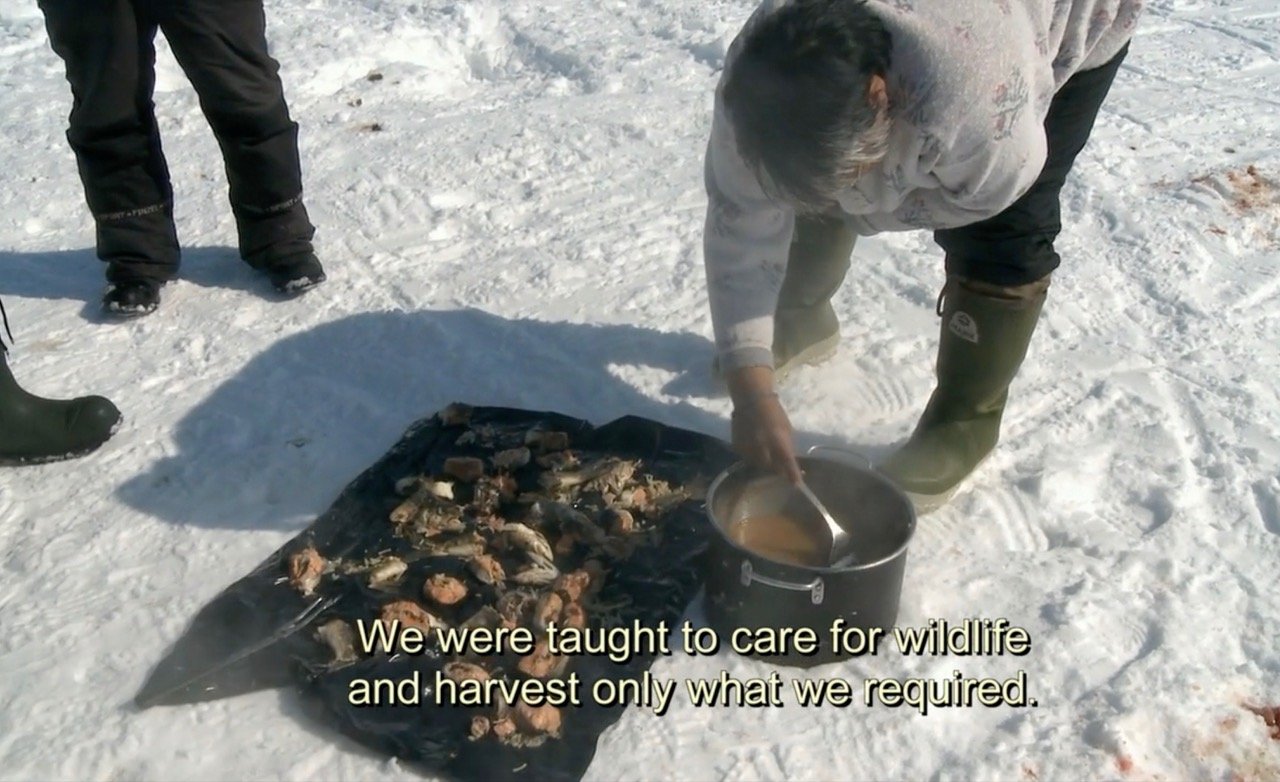Inuit Knowledge
February 10 saw the successful kick-off event for Living Climate Futures. Three MIT Anthropology undergraduate classes (Environmental Struggles; Gender, Race, and Environmental Justice; and Disease and Health) joined together for an evening screening of the documentary film, Qapirangajuq: Inuit Knowledge and Climate Change, made by acclaimed Inuk filmmaker Zacharias Kunuk and environmental scientist Dr. Ian Mauro. Released in 2010, the documentary revolves around a series of conversations with elders in four communities in Nunavut, a self-governed Inuit territory within Canada. In the film, Inuit elders describe how they were raised to always pay close attention to the environment and to weather patterns, since doing so, for communities living in the Arctic, is crucial both for safety and for hunting livelihoods. The elders offer detailed descriptions of the transformations they have witnessed over time, from the demise of once massive glaciers to the greater unpredictability of weather, to the thinning of the ice and permafrost on which people live and travel.
After the screening, Anthropology Professors Bettina Stoetzer and Chris Walley led a Q&A session. During the lively conversation that ensued, some students pointed out differences in how we come to know the environment, including the fact that Inuit peoples observe changes in the Arctic at close range year-round, while most scientists from the “South” conduct research on narrower questions and are often limited to summer research due to university schedules. There was also thoughtful discussion of two of the more contentious claims in the film, namely, that Arctic residents have observed a shift in the positioning of celestial bodies and that polar bear numbers are stronger than presumed (while the mishandling and tagging of bears in the name of conservation may in fact be harming them). Arctic residents have been proven correct on the first claim (due to refraction phenomenon and tilting of poles, see links). Lively debates are ongoing about the second.
The screening set the stage for future conversations during the Living Climate Futures symposium (April 22-23), including questions about how the convergence of different modes of knowledge production can offer a more robust understanding of climate change, how climate change is already being manifested in daily life, and the uneven impact that climate change is having on various populations.
The film is available to stream for free here.


